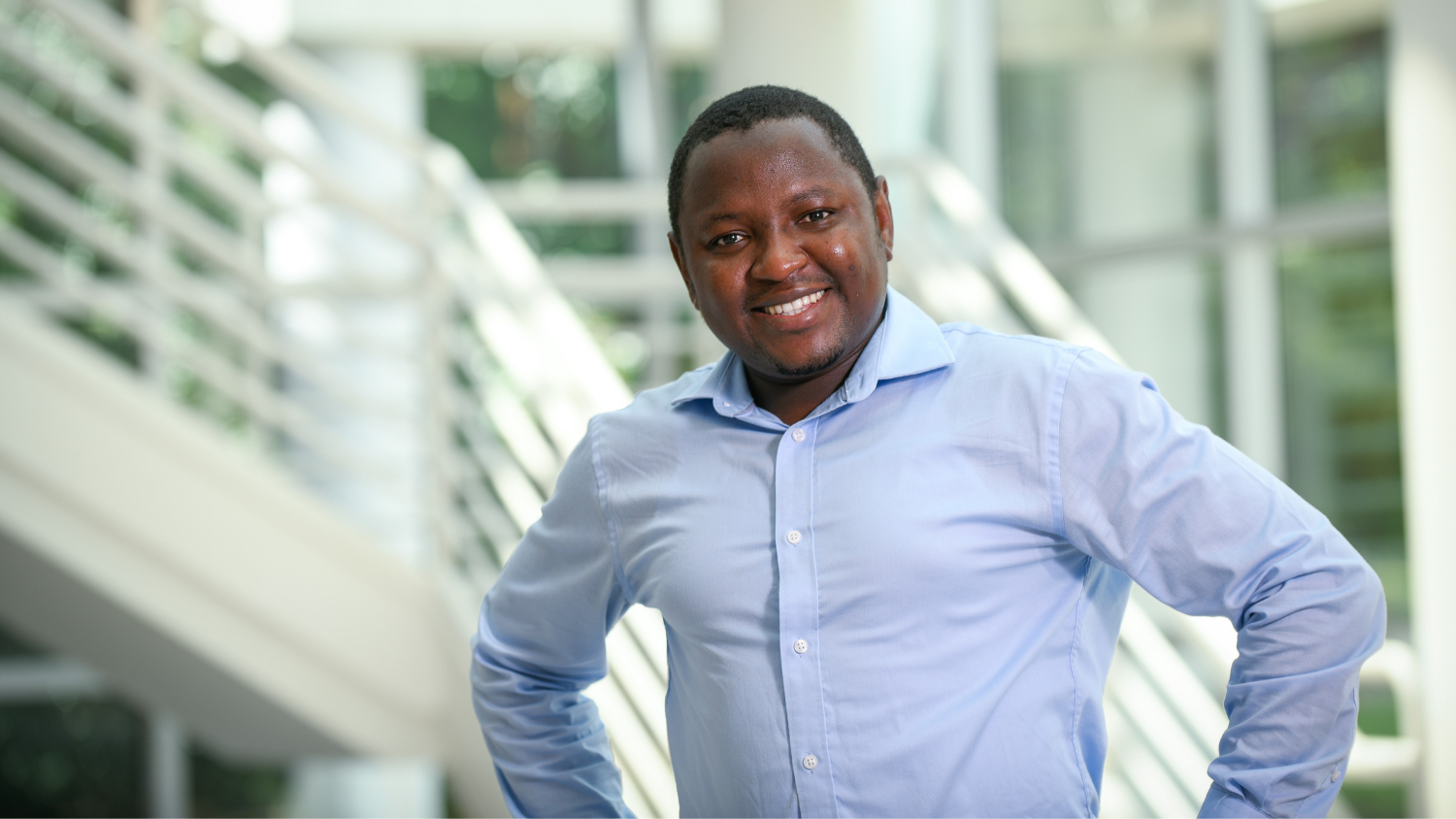Taking A Real-World Approach

Basiru Usman’s teaching experience began in Gusau, Nigeria, where, as a high school student, he tutored boys in science and math.
Now, less than 20 years later, his skill at sharing knowledge has landed him about 5,000 miles northwest of there, at Poole College, where he’s a teaching assistant professor in the business management department.
“I loved tutoring. I still have connections with people I tutored then,” he says. “I realized that sometimes all a student needs is a little push…and they will be OK. Most of my students were really willing to learn and have become successful in life.”
Usman expects the same of his MBA and undergraduate students at Poole, where he started teaching in 2020 after he finished an applied mathematics doctoral program at Auburn University.
It didn’t take long for MBA students to impress him with their drive to excel.
“Students are eager to learn, not just to pass an exam. They’re not just after grades. They are also willing to apply what they’ve learned from school in their workplace or their small business and in their personal life.”
One of Usman’s focuses in teaching is providing students opportunities to apply their education to address actual business challenges. “You can take a problem from a textbook, and it’s nice and tidy,” he says. “Or bring a problem from outside Poole to class and ask how we are going to solve the problem.”
That real-world approach ties in with another of Usman’s teaching priorities: interactive classes with engaged students. Some suggest solutions he hadn’t considered to address business issues.
As an expert in the rapidly growing field of artificial intelligence and machine learning, Usman stays current with data analytics technologies and cutting-edge software. “That is critical. Otherwise, you’re teaching students something that’s out of date,” he says.
Staying up to date with technology is a key takeaway for Usman’s students and alumni.
“If you want to be successful in the analytics world, you have to keep learning, and make sure you understand the trends. Collaborate with people in industry and science to understand how to apply what you learned in school.”
He encourages students to think broadly about how they can use their analytics skills, which are in demand in economics, health care and other fields.
Most people don’t know the complexities of machine learning, or developing ways computers can use data on a higher level to solve problems and improve performance with tasks. Usman, who calls machine learning a type of “black box,” pursued the evolving field because he wanted to explain its mystery to others.
He does that in his summer online MBA course on data engineering, management and warehousing, about systems of integrated data, and in his class on predictive analytics for business, which explores consumer decision-making.
Usman’s students are eager to leverage their education to help them stand out in their career. “What I love about Poole students is that they are thinking ahead,” he says. MBA students help each other, too, by sharing workplace experiences and insights, notes Usman, who enjoys playing soccer and spending time with his children outside of class.
What distinguishes Poole from other business schools?
For Usman, it’s the focus on innovation. “That’s something other schools claim, but most schools don’t embrace new things,” he says. “Poole is really open to new ways of doing things.”
An article he recently had published in the journal Nonlinearity reflects that pioneering approach. The peer-reviewed article explained his research designing a neural network, the backbone of machine learning. “I came up with a new structure of a neural network that has never been used before,” Usman says. “When you come up with something completely new, that is satisfying.”
As satisfying as that is, there’s something about teaching that’s even better for Usman: making an impact on students and their careers.
An MBA student emailed him this summer about her internship with Amazon in California. She said she’s using tools she learned in his predictive analytics for business class, including Excel, RStudio and Tableau.
“It was a joy to read that,” Usman says. “She made my day. As a teacher, this is the best reward you can get.”
This post was originally published in Jenkins MBA News.
- Categories: